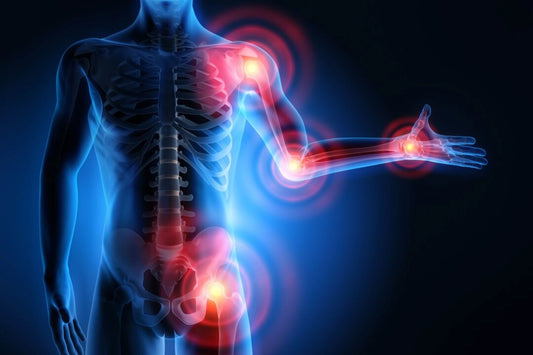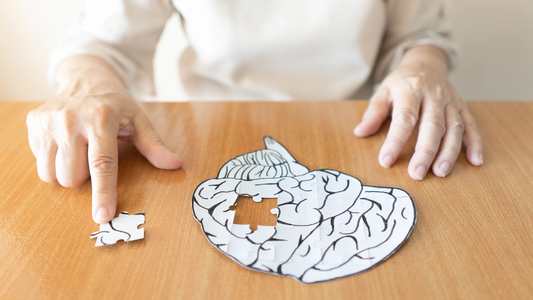Brain health should be at the top of everyone’s list of concerns today, especially due to the recent rise in so many disorders and diseases related to the brain. The conventional medical approach to brain health issues does not typically include much of an emphasis on nutrition, including dietary supplementation. However, a brain supplement should be a primary tool for taking care of the brain, particularly in the context of a disease or disorder affecting it. While it may seem like it goes without saying, without a healthy brain, then we are not ourselves. In particular, if we have problems with our memory and focus, two key aspects of cognitive function, then we will likely deal with not just intellectual, psychological, and emotional deficits, but physical ones as well. Thus, including a daily supplement to improve brain function helps us to maintain our faculties and abilities; perhaps no better stated than by the great French philosopher and scientist, René Descartes, who coined the very famous phrase (translated into English), “I think, therefore I am.”
The Rise in Brain Diseases and Disorders
Part of the recent increasing interest in brain supplements or brain vitamins has been due to the rising prevalence of diseases such as dementia and other forms of memory disorder (Wu et al., 2017) and the large number of people suffering from other issues such as traumatic brain injury, post-traumatic stress disorder, depression, anxiety, bipolarism, and children with developmental disabilities (Gardner & Yaffe, 2015; Goodwin et al., 2020; Monroe & Harkness, 2022; Oakley et al., 2021; Zablotsky & Black, 2020). Thus, across life’s spectrum, people of all ages are trying their best to manage a disease or disorder in their children, themselves, or their parents or other elderly family members. The overwhelming number of people with one of these health challenges has resulted in a greater awareness of not just brain health, but how to go about addressing it with some type of brain function supplement.
Brain Supplements
Many different brain supplements to improve brain function have been tested over the last 30+ years. For example, vitamins D and E are two brain vitamins that have been studied to determine if they have any particular benefits on memory and focus or other parts of cognitive function. My colleagues and I reviewed some of the research in humans on these two important vitamins to see if taking them as a supplement would have any effect on cognitive function. Unfortunately, the studies that we reviewed did not show significant or overwhelming support for their use in improving cognitive function, including memory and focus (Lewis et al., 2021). While the lack of support in this particular does not undermine their overall value to our health, it is debatable to refer to vitamins D and E as brain vitamins for improving cognitive function. In the same review, we also reviewed other nutrients and nutrients, such as Ginkgo biloba, N-acetyl cysteine, omega-3 fatty acids, and aloe polysaccharides. More favorable effects were found for N-acetyl cysteine (Rapado-Castro et al., 2017) and the aloe polysaccharides in combination with other key nutrients (Lewis et al., 2021).
Developing our brain supplement: Daily Brain Care
Our research on aloe polysaccharides combined with other key nutrients, such as N-acetyl cysteine, lead to the creation of Daily Brain Care, which has been clinically proven to show improvements in cognition, including memory and focus. Daily Brain Care shows remarkable benefits compared to other brain supplements or brain vitamins. If you are not familiar with this product, you may wonder how to take Daily Brain Care. It is a powder that can be conveniently mixed with water, juice, smoothie, tea, apple sauce, or any other liquid or food that is not a boiling or extremely high heat. It can be taken on an empty stomach or with food, and it is not known to adversely interact with any medication or any other dietary supplement.
Conclusion
Your brain is you! Taking care of your brain’s health should be at the very top of your daily priority list. Adding a high-quality, clinically-proven brain health supplement like Daily Brain Care is the perfect complement to your ongoing health routine, in addition to eating a whole-food, plant-based diet, exercising, sleeping well, and managing stress, for protecting your brain and maintaining your memory and focus.
References
Gardner RC, Yaffe K. Epidemiology of mild traumatic brain injury and neurodegenerative disease. Mol Cell Neurosci. 2015 May;66(Pt B):75-80. doi: 10.1016/j.mcn.2015.03.001. PMID: 25748121.
Goodwin RD, Weinberger AH, Kim JH, Wu M, Galea S. Trends in anxiety among adults in the United States, 2008-2018: Rapid increases among young adults. J Psychiatr Res. 2020 Nov;130:441-446. doi: 10.1016/j.jpsychires.2020.08.014. PMID: 32905958.
Lewis JE, Poles J, Shaw DP, Karhu E, Khan SA, Lyons AE, Sacco SB, McDaniel HR. The effects of twenty-one nutrients and phytonutrients on cognitive function: A narrative review. J Clin Transl Res. 2021 Aug 4;7(4):575-620. PMID: 34541370.
Monroe SM, Harkness KL. Major Depression and Its Recurrences: Life Course Matters. Annu Rev Clin Psychol. 2022 May 9;18:329-357. doi: 10.1146/annurev-clinpsy-072220-021440. PMID: 35216520.
Oakley LD, Kuo WC, Kowalkowski JA, Park W. Meta-Analysis of Cultural Influences in Trauma Exposure and PTSD Prevalence Rates. J Transcult Nurs. 2021 Jul;32(4):412-424. doi: 10.1177/1043659621993909. PMID: 33593236.
Rapado-Castro M, Dodd S, Bush AI, Malhi GS, Skvarc DR, On ZX, Berk M, Dean OM. Cognitive effects of adjunctive N-acetyl cysteine in psychosis. Psychol Med. 2017 Apr;47(5):866-876. doi: 10.1017/S0033291716002932. PMID: 27894373.
Wu YT, Beiser AS, Breteler MMB, Fratiglioni L, Helmer C, Hendrie HC, Honda H, Ikram MA, Langa KM, Lobo A, Matthews FE, Ohara T, Pérès K, Qiu C, Seshadri S, Sjölund BM, Skoog I, Brayne C. The changing prevalence and incidence of dementia over time – current evidence. Nat Rev Neurol. 2017 Jun;13(6):327-339. doi: 10.1038/nrneurol.2017.63. PMID: 28497805.
Zablotsky B, Black LI. Prevalence of Children Aged 3-17 Years With Developmental Disabilities, by Urbanicity: United States, 2015-2018. Natl Health Stat Report. 2020 Feb;(139):1-7. PMID: 32510313.





